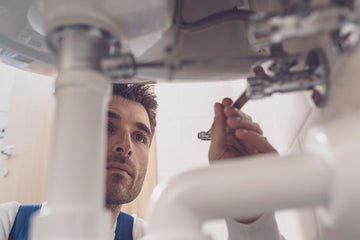In the realm of modern safety and efficiency, ensuring protection from potential water damage is a priority for many, especially those responsible for maintaining industrial and commercial properties. An effective way to safeguard these spaces is through a reliable underfloor water leak detector. Given how quickly water can wreak havoc, integrating this technology can prevent costly repairs and maintain operational continuity.
As part of a growing interest in smart building technology, the underfloor water leak detector stands out in maintaining property integrity, preventing unforeseen damages, and allowing peace of mind for all facility managers and owners.

The Importance of Underfloor Water Leak Detectors
Water damage is not only burdensome but can also have severe long-term impacts on any infrastructure. In environments where water-related equipment or plumbing lines run beneath floors, a leak can go unnoticed for a prolonged period. This is where underfloor detectors become indispensable. They offer the ability to monitor and alert systems in real-time, allowing immediate action to be taken.
For more insights into how leak detection can transform spaces, visit the technology behind smart water leak detectors.
How Does an Underfloor Water Leak Detector Work?
An underfloor water leak detector typically contains sensors placed beneath the flooring. These sensors identify the presence of abnormal moisture levels and promptly send alerts to a centralized system or directly to personal devices, fostering an effective response mechanism.
In many state-of-the-art systems, such as the ones covered in this article on whole-house water leak detection, the technology is sophisticated enough to differentiate between various types of moisture levels, thus enhancing its accuracy.
Types of Sensors
Water leak detectors can vary in terms of sensor technology. Some detectors utilize simple moisture sensors, while others incorporate more intricate electrode-based systems which offer ascendancy in capturing and accurately reporting conditions.
An understanding of these varying technologies can be further explored in this article on water sensors for different rooms.
Installation and Maintenance
Installation of these detectors generally involves placing sensors strategically in areas most vulnerable to leaks. Consistent maintenance is key in maintaining sensitivity. Regular checks ensure the system's integrity and that worn out or damaged sensors are promptly replaced.
Keeping an eye on system updates is crucial too, as many companies roll out upgrades to enhance detector efficiencies and capabilities.
Benefits of Underfloor Water Leak Detectors
Prioritizing the installation of these detectors brings numerous benefits. They prevent damage costs, preserve property value, and allow systems to work more efficiently by ensuring the infrastructure remains in proper working condition.
For a dive into smart home efficiencies, you can read more about how water sensors work at Vivint Resources.
If youve considered incorporating leak detectors into a broader smart home or building automation system, its essential to deliberate on required features, budget, and the reputation of the system provider.
Enhanced Safety and Efficiency
By deterring leaks and subsequent hazards, underfloor water leak detectors contribute significantly to maintaining a safe environment. They also ensure company resources aren't diverted to unnecessary repairs.
Conclusion
As businesses and homeowners strive for optimal safety and efficiency, investing in quality underfloor water leak detectors becomes indispensable. Coupled with a broader water management strategy, these devices offer a robust approach to managing risks.
Explore more about efficient water management and detection systems through an insightful read on plumbing leak monitors.

FAQs
What are the main features to consider in a water leak detector?
The primary features to consider are sensor accuracy, alert mechanisms, integration capabilities with smart systems, and ease of maintenance.
How frequently should detectors be checked or maintained?
Routine checks can be performed bi-monthly to ensure optimum performance and longevity of the device.
Can underfloor water leak detectors integrate with other systems?
Yes, many advanced detectors offer compatibility with broader building management systems, enhancing overall efficiency and safety protocols.






